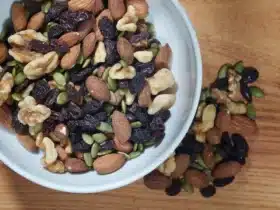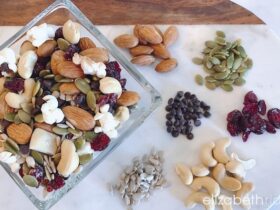Age-related variations occur in body composition. This frequently occurs as a consequence of reduced physical activity, which in turn causes a decline in the basal metabolic rate (BMR).
When we have less muscle mass to expend calories, it may be more difficult to consume the same amount of food without accumulating weight. Additional alterations in hormones, preferences, energy levels, and nutrient assimilation may have an effect on our health and fitness.
However, maintaining good health after the age of 50 does not preclude you from enjoying food. Obtain the proper equilibrium with the help of these helpful hints.
Remain Active
The notion that our metabolism slows with age is widely held to be false.
In actuality, this results in a reduction in our level of physical activity and subsequent muscle mass loss. When the body has less muscle, it requires less energy; therefore, food is stored as fat instead of being consumed. As a result, our basal metabolic rate (BMR) decreases in response to changes in body composition.
Activeness is the simplest method to counteract a slowing BMR. Walking is an effective, relatively low-impact form of exercise for calorie burning and muscle maintenance. Additionally, walking is beneficial for the heart and improves one’s disposition.
An additional selection of low-impact exercises comprises gardening, swimming, Pilates, and yoga.
Reduce Calorie Intake, Not Taste
While continuing to appreciate your favorite foods, you can save a substantial number of calories by making minor adjustments.
Numerous individuals discover that reducing their carbohydrate consumption aids in maintaining their physique. Spaghetti squash could be utilized in place of pasta. And despite your lack of baking experience, this low-carb bread recipe is both delectable and straightforward to prepare.
Alternately, you can alter your daily consumption of certain products marginally, for instance, by substituting low-fat dairy for full-fat alternatives. Numerous are identical in flavor but contain significantly fewer calories.
Attempt to incorporate more meat-free dishes into your diet. Consider preparing a legume Bolognese or a lentil and vegetable stew. Two times per week, omitting meat will result in significant reductions in saturated fat and calories.
Take into account supplements
An additional critical component of physical fitness is the preservation of one’s health.
As we age, our bodies become less efficient at absorbing certain nutrients; therefore, to maintain good health, it is crucial that we ingest calories that are as nutrient-dense as feasible.
Insufficiency of essential vitamins may impede the body’s ability to properly convert food into energy, potentially resulting in feelings of lethargy and fatigue. Additionally, you run the risk of contracting infections and more severe diseases.
You might be deficient in Omega-3 fats, folic acid, vitamin B12, calcium, vitamin D, and fiber, among other nutrients.
Supplementation may be necessary, although obtaining nutrients through diet is always preferable. Consult your physician regarding your diet and whether or not supplements could assist you in maintaining your fitness level after the age of 50.
Consume Water
Additionally, as we age, our sensation of thirst diminishes, making it more difficult to determine when we are dehydrated.
Additionally, consuming water aids in digestion, increases vitality, and suppresses appetite.
Additionally, dehydration can result in urinary tract infections and memory issues; therefore, ensuring adequate water intake is advantageous for both our physical and mental well-being.
Maintain a supply of small bottles of water in your refrigerator and consume from them on a regular basis, irrespective of your level of thirst. Aim for approximately eight glasses daily to maintain optimal health.
Sleep Soundly
Maintaining fitness regardless of age requires equilibrium. In addition to your diet and level of physical activity, adequate sleep is a crucial component of that.
In addition to providing an opportunity for mental and physical rejuvenation, sleep also regulates the hormones responsible for regulating appetite signals. Insomnia can disrupt these signals and deceive the brain into believing that the individual is famished when in fact they are not.
Obtaining a restful slumber may become more challenging as one ages, potentially due to hormonal fluctuations, physical discomfort, or alterations in oxygen consumption.
If you are experiencing difficulty sleeping at night, these straightforward solutions to improve your sleep should be of assistance.
How to Maintain Your Fitness Beyond 50
Maintaining fitness after the age of 50 does not necessitate abstaining from consuming favorite foods or implementing significant dietary modifications.
By making modest, sustainable adjustments to one’s diet and lifestyle, it is possible to sustain excellent health and physical fitness for an extended period of time.
Do you have any personal recommendations for maintaining fitness after the age of 50? Inform us by leaving a comment below.










Leave a Reply